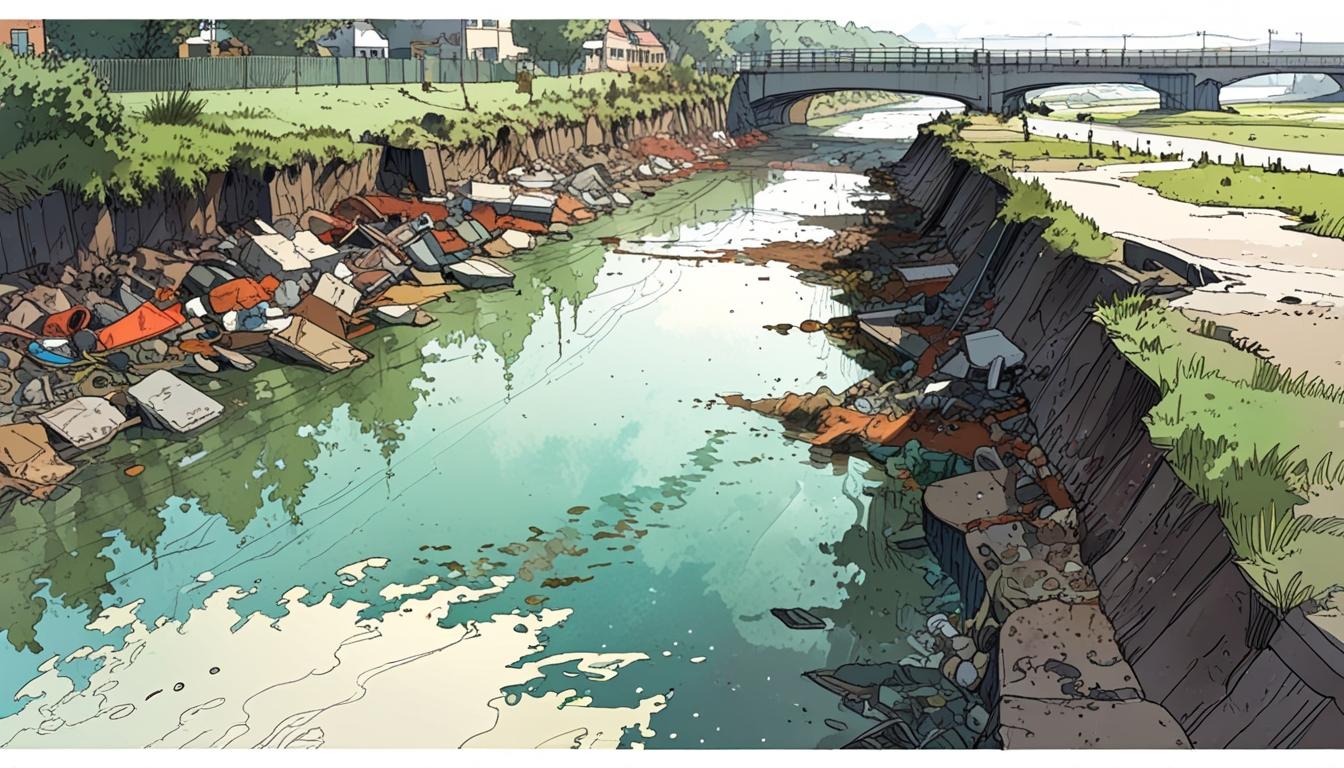Newly released data from the Environment Agency has revealed alarming statistics regarding sewage spills into England's seas and waterways, showcasing a continuing trend of environmental distress. In 2024, storm overflows dispensed sewage into rivers, lakes, and coastal waters for over 3.61 million hours, achieving a new record. Although the number of incidents has decreased slightly from the previous year — around 14,000 fewer spills — the duration of each spill has notably increased.
In Sussex, a detailed analysis from Southern Water has highlighted the specific areas most affected by sewage overflow. The Lavant Wastewater Treatment Works north of Chichester bore the brunt with 6,829 hours of spillage across 287 incidents, discharging directly into the River Lavant. Other significant sites included Ham Lane Storm Tank in Lewes with 4,824 hours of spills into the River Ouse, and the Storm Tank on Hammerwood Road in Ashurst Wood, releasing 4,130 hours into the Shovelstrode Stream.
James MacCleary, the Liberal Democrat MP for Lewes, expressed his concerns regarding the pollution of local water bodies, stating, "Here in Lewes, residents are appalled by what’s happening to the Ouse, and the Cuckmere, not to mention our beautiful bathing spots, all while facing sky-high water bills." He called for urgent government intervention to establish a new regulatory body to oversee sewage management and advocated for the official recognition of Seaford Beach as a Blue Flag site to ensure cleaner waters.
In the South West, concerns are also mounting. South West Water has disclosed plans for substantial investments over the next five years aimed at reducing the sewage discharges from 11 storm overflows in Plymouth. The company's priority is to address pollution issues in the city's bathing waters, recently designated as a part of a National Marine Park initiative. Councillors have proposed the implementation of a digital alert system to inform residents when sewage overflows are active, particularly in light of a reported 28 per cent hike in water bills amid ongoing concerns about water quality.
The company has acknowledged that while they treat around three per cent of sewage before it reaches overflow systems, their goal is to reduce that to less than one per cent. Despite a commitment to improve, it was noted that two-thirds of pollution in local watercourses is attributed to non-sewage-related issues, such as agricultural runoff and plastic waste.
In East Devon, the situation has drawn strong criticism from the local MP Richard Foord, who labelled the actions of South West Water as "wilful neglect." His comments followed reports indicating that pumping stations in the Honiton and Sidmouth area had discharged untreated sewage multiple times throughout the year, with Salcombe Regis suffering the highest frequency, with spills occurring 366 times.
Foord highlighted the severe consequences, stating, "I am disgusted by the level of wilful neglect," and called for reinvestment in infrastructure instead of executive bonuses, citing a need for stronger governmental regulation. The data revealed multiple sites in the area, including Dulford Pumping Station and Payhembury Wastewater Treatment Works, recorded extensive hours of spillage into local rivers.
In a response, Richard Price, the managing director of wastewater services at South West Water, defended the company's progress, asserting they were one of few that had managed to reduce spills compared to 2023 despite challenging weather conditions. He indicated that efforts are being directed toward the worst-affected locations and that transparency in their operations remains a priority.
The situation presents a complex challenge for England's environmental health and water management systems as increased scrutiny continues over the regulatory frameworks in place, with stakeholders emphasising the need for more substantial action to protect vulnerable waterways.
Source: Noah Wire Services
